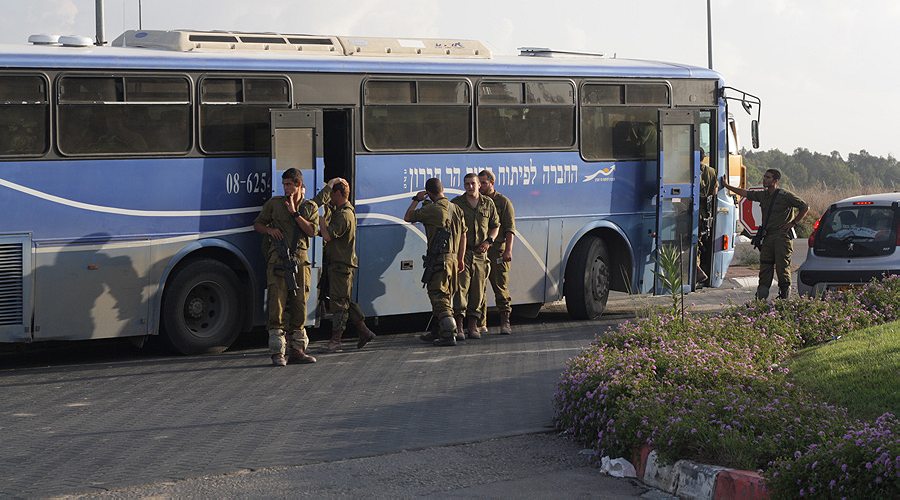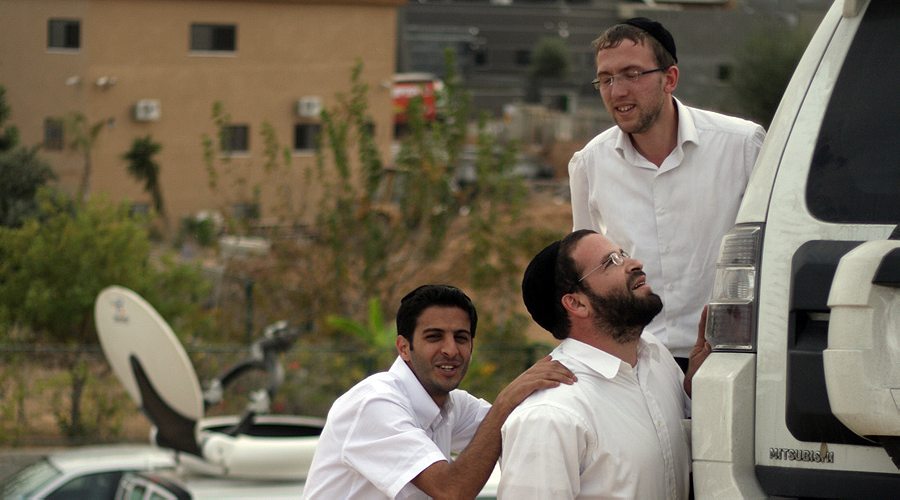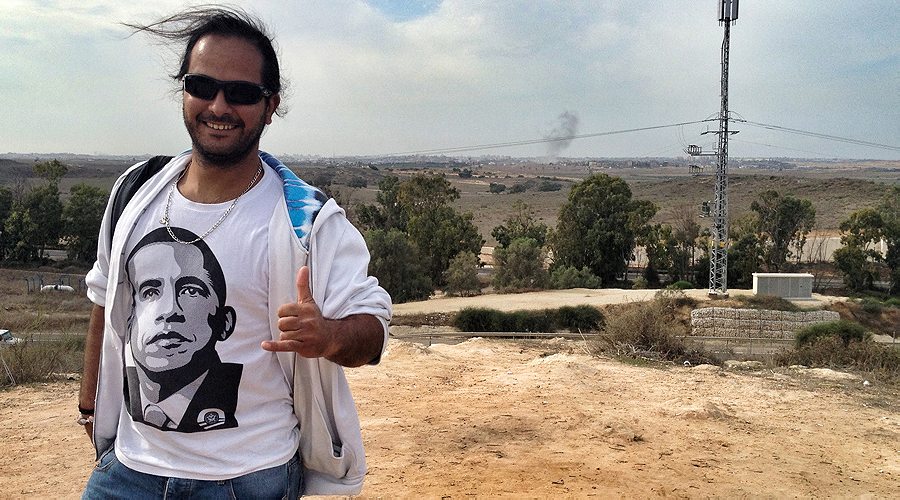Forget “Twitter war”: on the ground, the only technology that really matters is the kind that kills.
Sure, you could say this was a Twitter War. You would say that, of course, because Israel announced the launch of the fighting on Twitter. You would say that because after the fighting started, a second front opened on social media, including a brief Twitter pissing match between Israel and Hamas’ militant wing.
You would say it was a Twitter war that if you saw the way that I kept in touch with my circle of friends, most of whom, like me, are reporters living in the Middle East and reporting on the war. From the moment the conflict started, I was fed with near constant updates from Twitter from colleagues on the ground in Gaza. Twitter is where my West Bank housemate, a correspondent for Radio France, announced that she had forgotten her flak jacket and helmet in her rush to be one of the first to reach Gaza.
I spoke with her also on the phone, as she grew increasingly anxious that Israel might launch a ground invasion. Hamas had already made clear that they might not let foreign journalists leave in that event; if that happened, they presumably wanted my friends and colleagues’ Twitter accounts to ring out with the very real sense of uncertainty, the dread of being trapped in the path of an advanced war machine.

The conversation between me and my housemate continued again on Twitter, where she desperately searched through the tealeaves of the Hebrew media for signs that an invasion would come.
You could say it was a Twitter war because the world did rely on intimate, immediate updates from the journalists crammed into the Gaza Strip with their smart phones and substantial Twitter followings. When I myself was on the Gaza border, almost as soon as I heard the rumble of Israeli F-16s through the night sky, I would read yet another batch of updates from journalists on Twitter informing the world of an Israeli airstrike. The earth would shake after an Israeli payload hit its target in the northern part of the Gaza Strip, but only if the blast was near. Twitter always shook, no matter where the bombs fell.
It went beyond Twitter. Israel has long had an advanced propaganda outfit designed to ‘explain Israel’s position’. This war merely elevated the levels to which Israel would go in its endless explanations. It spread even to Israel’s official Pinterest account, where the military sought to rationalize the use of overwhelming force on one of the most densely populated slices of land in the world, on a network better known for reposts of clever design solutions and pictures of well-plated food.
You could call it a Twitter war after Anderson Cooper posted a photo of himself, with press flak jacket and new haircut, entering Gaza through the Israeli-controlled Erez border. Suddenly pieces on heavily trafficked American sites like Gawker and Gizmodo popped up, poking fun at the Israeli military’s social media strategy for its distasteful use of popular hashtags and the frat boy-like tweets of official Israeli spokespeople.
You could call it a Twitter war, but you would be wrong. When I left my home in the West Bank, and crossed through a suddenly strenuous checkpoint en route to Sderot, the Israeli frontline village on the Gaza border, it didn’t look like Twitter war. It looked like plain old war, the same violent mess, unchanged by Four Square check-ins or Reddit flame wars or Twitter userlists.
On the Israeli-Gaza border, I was met by the buildup of 56,000 Israeli soldiers, rapidly deployed from all corners of the country. People wanted blood, perhaps rightly so after living in the terror of the rocket attacks, and weren’t afraid to tell me about it. I’ve spent time in the region before, these beautiful farmlands leading from Gaza up to the Jerusalem foothills. I was familiar with the aggressive anti-Arab views of the residents. But their point wasn’t driven home by hastags. It was made clear by a rocket, launched from Gaza, that landed a few hundred meters away from where I was interviewing an Israeli from Sderot about his life under rocket fire.

As soon as the piercing sound of the rising-and-falling siren had reached our ears, we had run to hide behind a parked car. Then the roar of the Iron Dome, Israel’s upgraded anti-missile defense, erupted out of nowhere, launching a rocket skyward and leaving a thick black trail of some in the otherwise cloudless sky. Within seconds, the attack was over and black clouds of smoke billowed from a house 500 meters away. Dogs began barking in unison as emergency crews rushed to find victims.
As we regained our composure, my interview subject picked up where he left off. “Muslims only understand death. That is why we will flatten Gaza,” he said before wildly cheering a passing military convoy on the road below us. Wearing a crisply pressed Barack Obama campaign t-shirt, he was proud to assert in no uncertain terms how dependable American support for ‘any’ Israeli operation would be. It was familiar, and nauseating. The ceasefire two days later came as a blessing, but it did not and will not stop more violence.

That’s the nature of this the thing you call a Twitter war: entrenched dreams of violence from both sides, old as the dirt they fight over. The only new technologies that really seem to matter on the ground are the kind that kill people, or, on a good day, kill rockets.